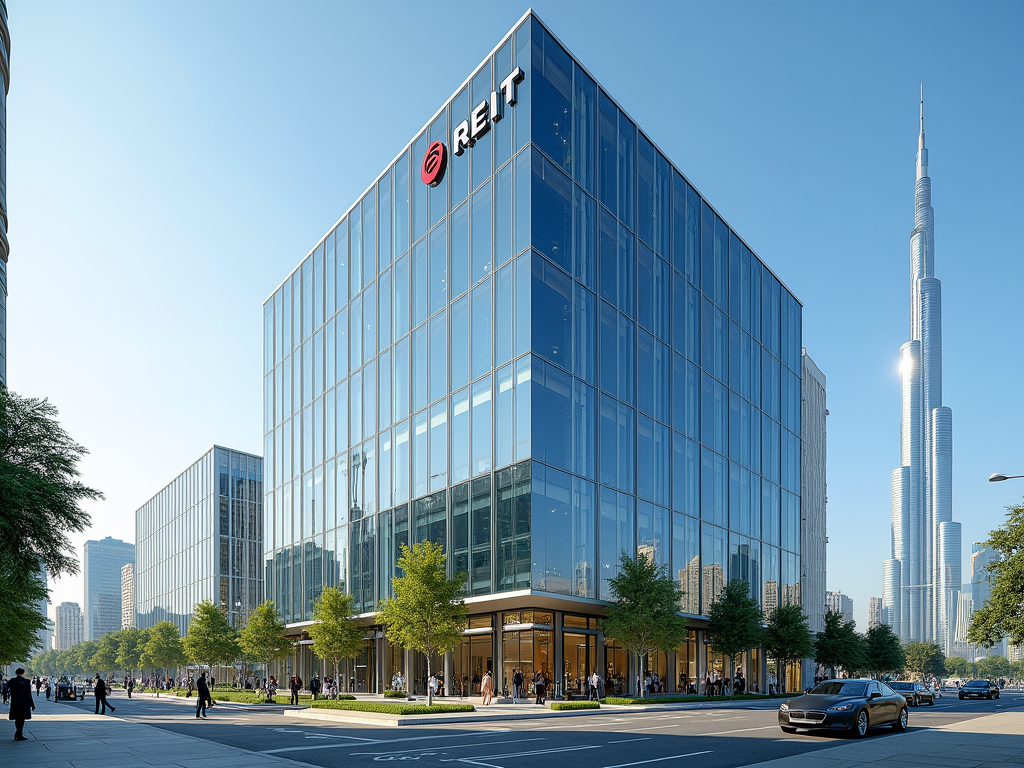Real Estate Investment Trusts (REITs) in Dubai present a compelling investment opportunity for both local and international investors. These trusts allow individuals to invest in large-scale, income-generating real estate without needing to buy properties outright. Dubai’s rapidly growing economy, robust tourism sector, and favorable regulatory environment make it an alluring destination for REITs. By pooling capital from multiple investors, REITs provide the benefits of diversification, liquidity, and professional management. This article will explore the structure, benefits, and key factors driving the growth of REITs in Dubai.
Understanding REITs

REITs are companies that own, operate, or finance income-producing real estate across a range of property sectors. The core idea of a REIT is to generate revenue through real estate investments while providing shareholders with regular income. In Dubai, REITs are structured to comply with Sharia law, offering a unique investment vehicle for both Islamic and conventional investors. They typically invest in various asset classes such as residential, commercial, industrial, and hospitality properties. Investors benefit from a steady stream of income, as REITs are required to distribute at least 90% of their taxable income as dividends. This structure makes them attractive for yield-seeking investors.
The Appeal of Dubai as a REIT Market

Dubai’s strategic location and dynamic economy make it an ideal setting for REITs. The city has established itself as a global business hub, attracting multinational corporations and tourists alike. Here are some factors contributing to the appeal of Dubai’s REIT market:
- Economic Growth: Dubai has shown resilience and growth even during global downturns, with a diversified economy that supports various sectors.
- Tourism Boom: The emirate continues to be a top travel destination, boosting hospitality and retail sectors.
- Regulatory Framework: The Dubai Financial Services Authority (DFSA) provides a robust regulatory environment, ensuring market stability and investor protection.
- Infrastructure Development: Continuous investment in infrastructure enhances property values and demand.
- Tax Advantages: REITs in Dubai benefit from favorable tax regimes, including no income tax on profits for companies.
Investing in REITs offers several advantages compared to direct real estate investment. These benefits make REITs an appealing choice for investors looking to diversify their portfolios. Key benefits include:
- Liquidity: Unlike physical property, REIT shares can be easily bought or sold on the stock exchange, providing quick access to capital.
- Diversification: REITs allow investors to gain exposure to a broad array of properties, reducing specific market risk.
- Passive Income: Investors receive regular dividends from REITs, which typically yield higher returns compared to traditional investments.
- Professional Management: REITs are managed by experienced professionals who handle property management, leasing, and maintenance.
- Inflation Hedge: Real estate often appreciates in value, providing a natural hedge against inflation over time.
Challenges Facing REITs in Dubai
Despite the opportunities, investing in REITs in Dubai comes with its challenges. Investors should consider these factors before committing their capital. Some potential challenges include:
- Market Volatility: Economic shifts and geopolitical issues can affect real estate markets, leading to fluctuating REIT prices.
- Regulatory Risks: Changes in laws or regulations can impact REIT operations and profitability.
- Interest Rate Sensitivity: REITs can be sensitive to changes in interest rates, which may influence borrowing costs and, consequently, returns.
- Concentration Risk: Some REITs may have portfolios concentrated in specific sectors, potentially increasing risk during downturns.
- Potential for Overvaluation: High demand can lead to inflated prices for REIT shares, impacting long-term investment value.
Conclusion
In summary, Real Estate Investment Trusts (REITs) in Dubai offer an enticing investment opportunity characterized by potential for high returns, diversification, and professional management. With the city’s growing economy and favorable investment climate, they present a viable option for both local and global investors. However, it is important to remain aware of the challenges, such as market volatility and regulatory risks, when considering investing in REITs. As Dubai continues to evolve as a commercial and tourism powerhouse, the REIT market is poised for growth, appealing to those seeking sustainable income and capital appreciation.
Frequently Asked Questions
1. What are the key benefits of investing in Dubai REITs?
The main benefits include liquidity, diversification across property types, passive income through dividends, professional management, and a natural hedge against inflation.
2. Are Dubai REITs compliant with Islamic law?
Yes, many REITs in Dubai are structured to comply with Sharia law, making them suitable for both Islamic and conventional investors.
3. What sectors do Dubai REITs invest in?
Dubai REITs commonly invest in residential, commercial, industrial, and hospitality properties, which helps to diversify their portfolios and reduce risk.
4. What challenges should investors consider?
Investors should consider challenges like market volatility, regulatory risks, interest rate sensitivity, concentration risk, and potential overvaluation of REIT shares.
Investors can purchase shares in Dubai REITs through the stock exchange, typically via a brokerage firm. They should conduct thorough research before making investment decisions.



